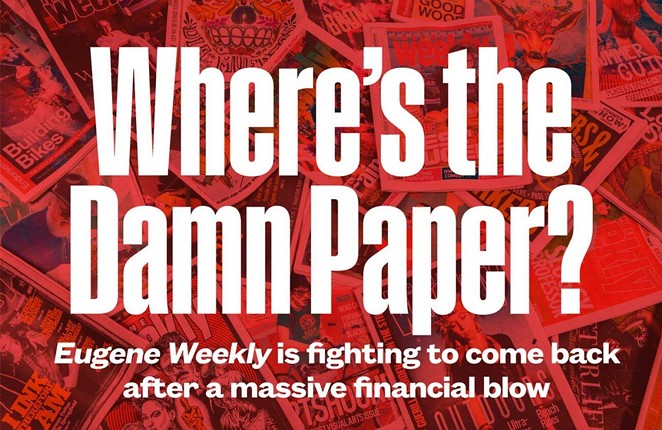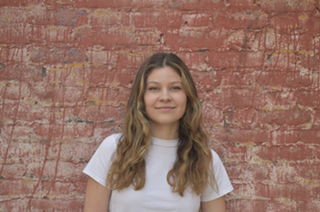On Dec. 28, “Eugene Weekly” published an article informing readers why there wasn’t a print edition distributed in Eugene and Lane County for the first time in over 20 years. The article, “Where’s the Damn Paper,” explained that EW discovered embezzlement within the company. We spoke with Eugene Weekly’s editor, Camilla Mortensen, to hear about the alleged embezzlement, the importance of local journalism and EW’s next steps moving forward.
Source Weekly: How did you find out about the alleged embezzlement?
Camilla Mortensen: We had some inklings that maybe something wasn't quite right. I think it was around Dec. 14. We were going to have a meeting, because there were a couple of concerns that had come up. It’s a former employee that did this and that employee was out. With them out, things started to come crashing down.
It wasn't until the next week that we were like, ‘oh no, this is bad enough that the paper can't survive this.’ We're a really small office. We were keeping people in the loop and giving them a heads up that things weren’t good. Dec. 21 is when we basically had to tell everybody there's no money for payroll and had to lay everybody off.
SW: How has this incident affected the paper?
CM: We owe money all over town; bills were not being paid and we didn't know. Our printers generously offered to print us again if we pay in advance and that's more than generous considering we owe them a lot of money. The impact of a small staff, laying off a reporter at Christmas, laying off my copy editor who only works a couple of hours a week, and our graphic people, that was part of it. We have this mission statement – we fight for the voice of the oppressed, and we try to give people a good job. So, just sort of picking up all the puzzle pieces of what we owe and how this gets done.
SW: What is EW’s background?
CM: We started in 1982 by a group of hippies. They started it in their house . . . it was more of a calendar than anything else. In the early ‘90s, Anita Johnson, who is the current owner, 94 years old and still comes into the office, was persuaded to buy into the paper to sort of help keep it afloat. She had been a journalist back in the ‘50s. She was the editor of the “Oregon Daily Emerald” and wrote this fiery editorial about a cross burning on campus that nobody had paid any attention to.
She made headlines across the country and pissed off the powers at the University of Oregon, so she's very much in keeping with the ethos of the paper. She persuaded her journalism school friend Fred Taylor to also buy into the paper. He was the managing editor and later the editor of “The Wall Street Journal” before he retired, so the other owner of the paper is his wife. He died a couple years ago. It has a very odd, hippie/Wall Street Journal legacy.
SW: What are your thoughts on the importance of local journalism?
CM: We have all these readers – some who are older and not digital, some who are younger but still like the print calendar and a lot of folks who are unhoused and low income and this is their main source of news and entertainment. It means so much to have this community paper.
There’s such a focus on the digital these days. There's no denying that digital matters, but the way social media has changed has really shown us that you can't rely on Facebook to be your source of news anymore. I think people aren't ready to have that taken away. And there's been just an amazing outpouring of support from folks.
SW: What are the next steps for EW moving forward?
CM: I'm here, I guess you would say, on a volunteer basis. A bunch of the other employees have been doing the same. You can tell us that were laid off, but that doesn't mean we have to listen. I resolved to get the paper out digitally; we did a small edition this week. The main story was really just our note to the readers. This is an advertising-based paper, it matters a lot to our advertisers to get the word out for their events and stuff, so we did a roundup of events.
I'm going to do a digital edition again next week. I've had offers of help from the journalism school and offers of help from former reporters at the Register Guard. Ideally, I want to get a print paper out early in January because I think people need that touchstone, and start getting this newspaper into a newspaper again.























